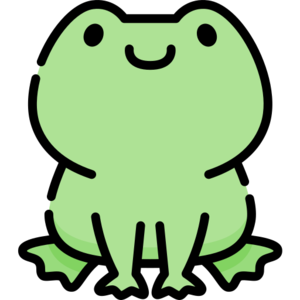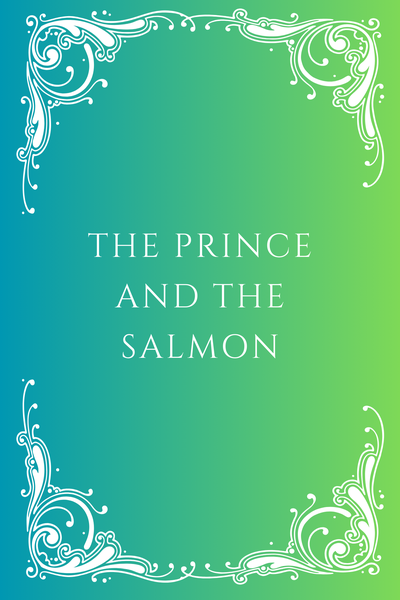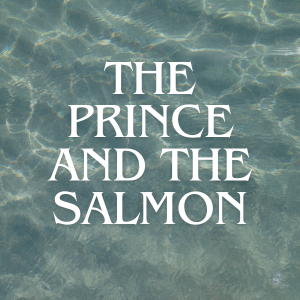Marianne
I thought he was a seal, at first.
We have tales here, where I live, of Saltborn who are born as seal-people, with silver fur cloaks instead of the scales of our folk, who live out in the water all the time. Seals have always seemed more magical to me than any other creature, and maybe that is strange given the nature of the Saltborn, we who can don our cloaks in the waves and explore the icy depths, but it does not seem as mystical to me as all the other wonders of the world. It is just something we can do, just as the Cloudborn in their haughty mountain halls can take to the skies in the form of birds. Just as a sheep produces wool, or a snake sheds its skin to show the brand new one.
And I was worried, when I thought he was a seal. I thought he might be lost, away from his family, and in that I was not wrong, but I took up my woollen cloak (which does not, in fact, turn me into a sheep) and I headed down to the rocks on the shore that were cradling that shape. My father did not look up as I left, too focused on the book in front of him, but I hurried down the steps and began looking around until I spotted the shape. The poor seal, I remember thinking. It must be far from home.
Again, I was right and wrong.
The wet sand clung to my skirts as I approached him, and to my surprise, it was not a seal at all, but a boy, bruised and pale. He was soaked through, and his wet hair clung to his cheeks, and my eyes were drawn to the thing he cradled. Wet feathers. I thought it was a dead bird, at first, and my heart felt a wave of pity, not knowing what had happened to him, and I thought he might be dead too, until I heard him cough. It was weak, and damp, and I knew then that I would have to take him up the stairs myself, and waste no time. If he was alive, he needed help to stay that way.
I piled him onto my back, and the feathered thing dropped. If I had not been thinking, I might have left it there to get swept away by the waves, but the way he had been holding it made me curse and pick it up, clutching it against his leg as I carried him across the beach, step by step. I am not as strong as I would have liked to be for this, and I felt weak for not being as strong as some here, who would have carried him as easily as they might a child. I staggered, but step by step, one foot at a time, I carried us back to my home, where Da was reading, unbothered by the world until I walked through the door, panting.
“Marie!” He jumped up. “What on the green earth are you doing?”
“He was on the beach. Get those books off the table before I throw them on the floor.”
He understood, luckily. I have always been comforted by knowing that both me and Da are as rude as each other, and we have never found each other to be unpleasant. We can be honest like this, though outsiders often disapprove.
“What is going on?” He dumped his books and papers in the armchair by the fire, mystified. “He does not look well, Marie. What happened?”
“How should I know?” I laid him on the table, trying to remember what my mother would have done, and began checking him over gently. Bruises, as I had thought before, and cuts. He hopefully had not been down there too long, or the cold might take him, and his clothes were soaked, adding to my troubles. Sand was mixed in with seawater in his hair, and he had small cuts, and a large burn on one hand. This would be difficult, but not unmanageable.
“I need to leave the room, Da.” I look at him. “I’ll get blankets and some of your clothes, but you’ll need to get these clothes off him and we’ll need to warm him up. I think he’s been out there a while. We’ll need to warm him up slowly, and not move him too much.”
“Alright.” Da looked a little lost. “But, Marie, who is he?”
“I have no idea, Da, but if we don’t do this, he’ll die.” I turned. “Don’t try to warm him up quickly at all, alright? We’ve got to treat that burn, too.”
My mother, when she was alive, was a competent woman who loved learning, and though she was not trained in the medical field as such, she read voraciously on the subject even before having a child. She met Da that way, the two of them both so lost in books that I imagine it was quite a surprise that they found another person in the library at all, and a delight to finally have someone who understood the hunger of the mind, as my mother always put it.
When I was born, she became my teacher. She encouraged me to read whatever I wanted, and every winter, when the island shrunk to the size of our front room and we all huddled in front of the fire, she would tell me stories that filled my mind and sent it tumbling like a tiny ship tossed by king-sized waves, always finding something new until Saint Mora’s Day, when we would fill the wooden chests with gifts and my father would place them by the back door, as the tradition stated. And in mine, every year, when I lifted the lid, my mother would have gotten me a new book, fuelling my own interests, never forcing her own onto me.
But despite that, she did make sure I knew what I needed to, and what I knew from her was that this boy, stretched like a corpse on our kitchen table, was at risk of hypothermia, if he did not have it already, and he needed treatment. I piled things into my arms, and raced back down the stairs, cursing under my breath. It would be difficult. But not impossible. I kept telling myself that as I piled the clothes and blankets and then went to the cupboard upstairs where we kept ointments and bandages, getting supplies as my father gently dressed the boy in warm clothes and wrapped him in blankets.
“Move those books,” I said, bringing the supplies back.
“Again? Where should I put them?”
“The floor, for now. He needs to be in the armchair, and—”
The boy coughed, and grimaced, and I watched hopefully, but he did not wake up more than that. Still, he was clearly alive and I could not want for more at this moment. Da sighed, muttering a little but piling everything onto the floor and then lifting the boy gently as though he weighed nothing and settling his cocooned body on the chair. I looked away, feeling embarrassed for a moment, as I knew he had been heavy for me, and I was starting to feel tired, but I knew I could not stop now. He would need watching, and that burn needed to be looked at – though I seemed to remember that my mother had told me once that saltwater could be good for burns. Surely, though, sand was not. I knelt by him, dressed his wound, and stood back, before looking back to the wet thing on the table, the damp bundle of feathers.
Da noticed my gaze, and walked over to it, unfurling it to reveal the most beautiful cloak I’d ever seen. White and brown feathers made it up, with the same strange material that I knew my own birth cloak had, that more than natural softness that bound scales on mine, and these feathers on this cloak.
But there was something wrong. The feathers were short and blackened on the bottom, and where some would have swooped gracefully while they were not soaked, they had gone to almost nothing on the other side. I shivered looking at it, the wrongness of it all, and Da, bless him always, put a hand on my shoulder with a sympathetic look.
“I’m sorry, Marie. I’m sorry you must see it. He must be Cloudborn.” He put down the cloak with great respect, as gently as if it were an injured, living thing, just as its owner was. “He has been through something very dreadful.”
I nodded, unable to speak, before looking back to him, seemingly asleep, cheeks beginning to flush. Whatever had happened, I did not know if his cloak would ever be worn again, or whether he would ever fly as a Cloudborn. The idea that I might be the one to break that news seemed to hang like a heavy weight in the air, and as I looked at the cloak, I could not help but see the image of my own cloak in its place, damaged in the same way, and my stomach churned at the thought.
“Go rest.” Da hugged me with one arm. “I can keep an eye on him.”
“No, I’ll stay.” I surprised myself by saying that, but I knew somehow that I needed to, that this was part of bringing him here. This was part of carrying him step by step, and that job had not ended yet. I pulled a kitchen chair in front of the large, comfy chair he rested in, and I heard Da sigh.
“You know, you’re as stubborn as ever. I’ll make us some soup, and maybe our guest will wake up in time for it.”
“Make sure you cut the vegetables small, then,” I said, sternly. Da tutted, loudly. He does not like to be ordered about in his cooking, I know, but if our mystery guest was to eat, he could not escape the jaws of hypothermia only to choke on potatoes and carrots.
The smell of Da’s soup slowly filled the air as I picked one of the books up from the floor, and began flipping through its pages. It was, of course, history – Da’s favourite subject – and it was a detailed history on the myths of the Saltborn, from the Salmon of Nine, to the seal people, and more of my favourite myths, all from our folk. I read through them, all the familiar stories, all the tragic endings and the magic and the romances doomed to end in death. Perhaps it might seem strange, but to me, these were the stories of my childhood, no matter how sad they might seem now that I was older. That was just how those stories were, for whatever reason that might be, and they were old friends.
Time slipped by, as it often does, and soon Da was ladling soup into two bowls, only for the boy to stir, looking up with confusion.
“Where...am I?” He sounded as weak as a newborn kitten, and I walked slowly over, crouching so as not to alarm him more than he might already be.
“My home. I found you on the beach.”
“The...But where am I?” He was confused and shivering slightly, but clearly he had warmed up more, cheeks flushing pink. “And who are you?”
“You are on Mara’s Rock.” I nodded my head to him. “I do not know where you have come from, but I think it might be a long way, and I am Marianne. That man there is my father, and we have food for you.”
His eyes became wary at that, and I felt a twinge of annoyance, though I pushed it down. Da stepped in front of me, offering him a bowl of soup, and waiting for him to take it, which he did, holding its warmth carefully. I took my own and sat down on my own chair, taking spoonfuls slowly as Da went to get his own bowl.
“I do not know this place,” the boy said, eventually. “And I do not know you, but you do not seem like a bad person.”
“You do not sound convinced.” I did not look up from my bowl. “I am sorry if our hospitality was not enough for you.”
The boy looked embarrassed, and Da cleared his throat. I knew that he wanted me to be kinder, especially as this boy was still weak from whatever had happened, but how was I to know that he would be this off putting when he woke up?
He looked at his hand after a moment, and a flurry of emotions washed over his face. I watched him closely, trying to decipher him, but he was a stranger and I did not know him well enough to know his feelings fully. He then looked around, moving too much, searching for something, and that I could find out.
“Do not move too quickly. You are hurt, and exhausted, but your cloak is on the table.”
“The fire, I—”
“It is burned.” I lowered my head. “I am so sorry. I do not know what to do, but it is here, and it is not lost. Please do not move too much, or you will make yourself worse.” I did not dare touch him, not now, even though I had hauled him up the beach and into my home, but now, he seemed like a cornered animal, his eyes wide as they landed on the poor, burned cloak that we had carefully unfurled onto the table.
“My wings,” he whispered, and would have dropped the bowl, had my Da not stepped forward, taking it off him and wrapping one arm around the boy.
“Marianne, leave the room,” he said, sounding stronger than he had in all my frantic treatment. I looked at him, and he shook his head. He had used my full name, and his face was like rock, so I did as he told me, closing the door behind me and heading up our creaking stairs. A howl of anguish erupted when I was halfway up, and I could hear my father’s quiet voice, as comforting as it had been during my childhood nightmares.
Quickly, I made my way up to my room, and tried not to hear it, tried not to be part of this awful thing clearly tearing him apart, and the false image of my own cloak in such a state flashed in front of my mind’s eye like lightning. Instead, I burrowed under my blankets, the door shut, and tried to block out the sound I could hear all too well, the grief that was ripping through and out of him.
I still did not know if I had done the right thing here, but I could not stop hearing it, that loss and unhappiness, far too human in its tone. Eventually, after some time, he quieted, but I did not dare go downstairs. Suppose he did not want to see me, and felt trapped in a strange house? Our house was wonderful to my eyes, but I knew that the Cloudborn lived in grand halls or lofty houses, and our home, despite the books that lined its walls and the happy memories it held, was hardly fancy by any means. And besides, I had been the one to tell him of his burnt cloak, the part of him that someone had damaged. My mind couldn’t let go of that, wondering what could possibly have happened. Sometimes you heard stories, but they were shocking ones, and it was not an ordinary thing. I thought again of the burn on his hand, and shuddered, wrapping the covers more tightly around myself, as if to protect myself from some unknown threat.
A small, selfish part of me was thinking of my soup, which was sure to be cold now, though I knew that was not the most important thing at the moment. Still, my stomach rumbled, my arms and legs ached, and I longed to eat and sleep, but I could not, not until I knew what was happening. Instead, I curled up, letting myself become warm and content inside the cover and trying to stay my worries as my body complained.











Comments (0)
See all